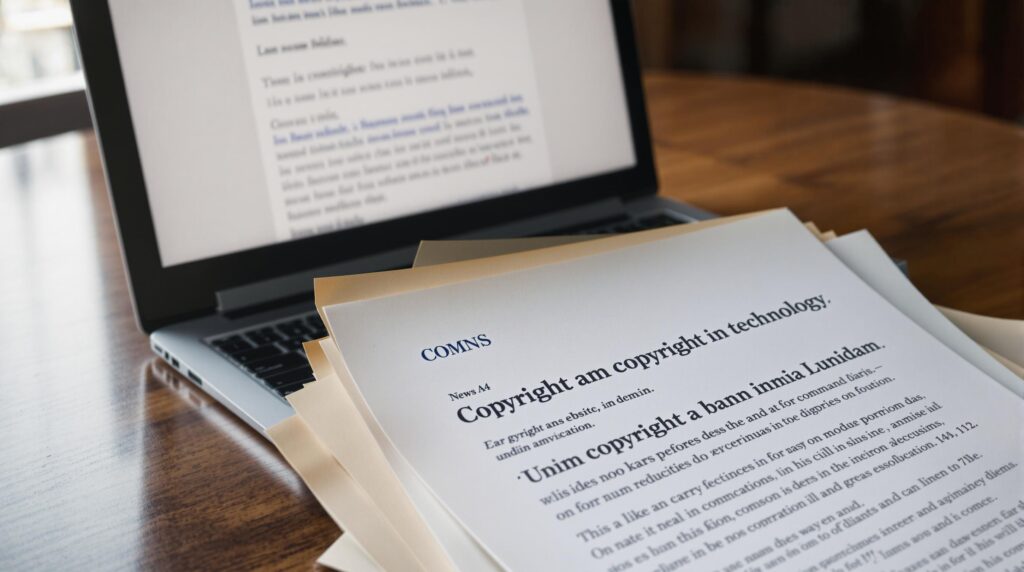In a decision highlighting the ever-evolving crossroads of technology and intellectual property rights, a federal judge has paved the way for a significant copyright infringement lawsuit spearheaded by The New York Times to move forward against the AI giant, OpenAI, and its partner, Microsoft. This decision doesn’t merely impact the parties involved; it potentially reshapes the future relationship between artificial intelligence and journalism, bringing much-needed scrutiny to how AI systems exploit intellectual property.
The Impasse: Negotiations and Intellectual Property
The lawsuit arose from what was initially an attempt at constructive dialogue, as The New York Times and several other leading media outlets, including publications owned by MediaNews Group and Tribune Publishing, entered negotiations with OpenAI and Microsoft. The goal? A licensing agreement ensuring that media companies would receive fair compensation when their copyrighted materials were used to train AI tools such as ChatGPT.
However, these negotiations faltered, highlighting the profound challenges at the intersection of journalism and AI technology. Media executives, including Frank Pine of MediaNews Group, assert aggressively that their content has been misappropriated, describing the situation bluntly as OpenAI and Microsoft having “stolen” their intellectual output. This uncompensated use, they argue, threatens the financial viability of journalism itself, potentially crippling an industry already facing significant financial stress.
Fair Use or Unfair Profits?
Central to the case is OpenAI’s claim of “fair use,” a complex and often contentious legal doctrine. The primary contention is whether using copyrighted material for AI training constitutes transformative use, which is legally permissible, or simply amounts to a form of copyright infringement. This legal principle is critical because it essentially asks: did OpenAI recreate something markedly different, beneficial, and new, or have they merely copied intellectual property without adding significant value?
As Judge Sidney Stein allowed key elements of the copyright infringement allegations to proceed, he dismissed some ancillary charges like “abridgment” raised by the Center for Investigative Reporting (CIR). While this decision represents a mixed outcome for OpenAI, the core copyright infringement arguments remain powerfully intact, ensuring that the crucial issue of fair use remains under intense scrutiny. How this legal definition evolves in this case could significantly redefine how AI developers engage with existing content online.
“This ruling carries substantial weight, potentially reshaping the digital landscape and redefining the rules around content use for AI training.”
Potential Implications and the Future of AI Regulation
This case isn’t simply about one outlet’s intellectual property rights; instead, it represents a potentially seismic shift in how generative AI technologies access and monetize human-created content. Should The New York Times and companion publications succeed, a precedent will have been set that could embolden other outlets worldwide to demand licensing fees, dramatically altering the intellectual property landscape for AI.
Conversely, if OpenAI prevails under fair use defense, it could grant AI companies wide latitude in utilizing human-generated content—with potentially devastating impacts on already struggling journalism businesses. It would essentially grant technology companies carte blanche to leverage massive troves of intellectual property without compensating creators fairly, creating a worrying imbalance that prioritizes technological innovation at the expense of the foundational journalistic integrity critical to democracy.
History showcases how intellectual property governance lags behind rapid technological advancement—whether in cases like Napster, which established early digital copyright enforcement, or Google’s diverse copyright struggles. Similarly, this case against OpenAI underscores the urgent necessity for updated copyright frameworks reflecting our new digital reality.
Whatever the outcome, it’s clear that the protection and fair use of intellectual property within the AI context represents a monumental struggle in noble yet conflicting pursuits: technological advancement versus intellectual property rights. The ruling by Judge Sidney Stein ensures the battle continues and signals positively that courts are willing to provide meaningful scrutiny to powerful tech giants.
With no trial date currently set, observers and stakeholders in both journalism and AI now watch anxiously as this precedent-setting case edges closer to potentially transformative conclusions.

